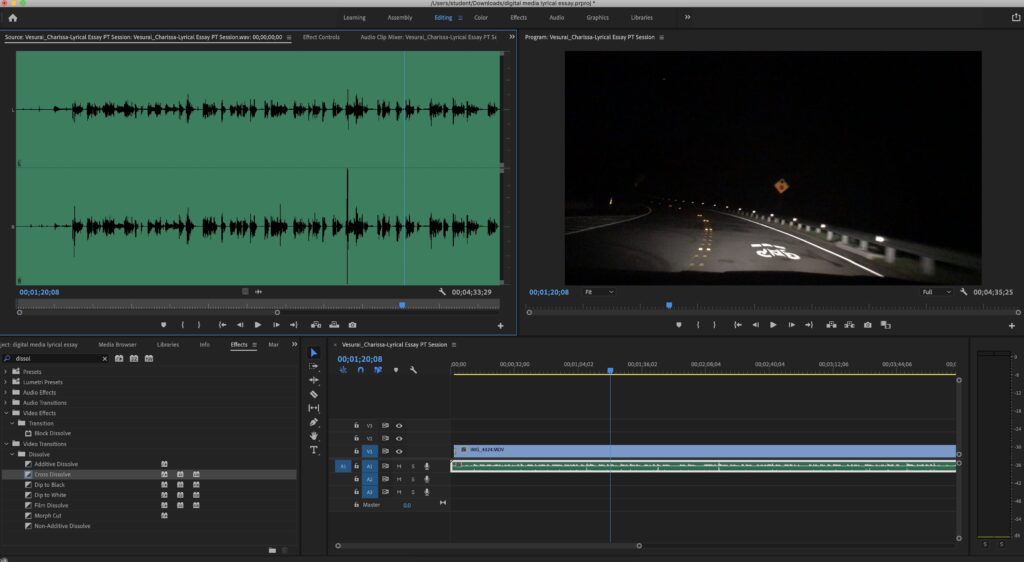In English class, we worked on lyrical essay writing which is a form of creative nonfiction. It combines autobiographical information with figurative language, like a poem.
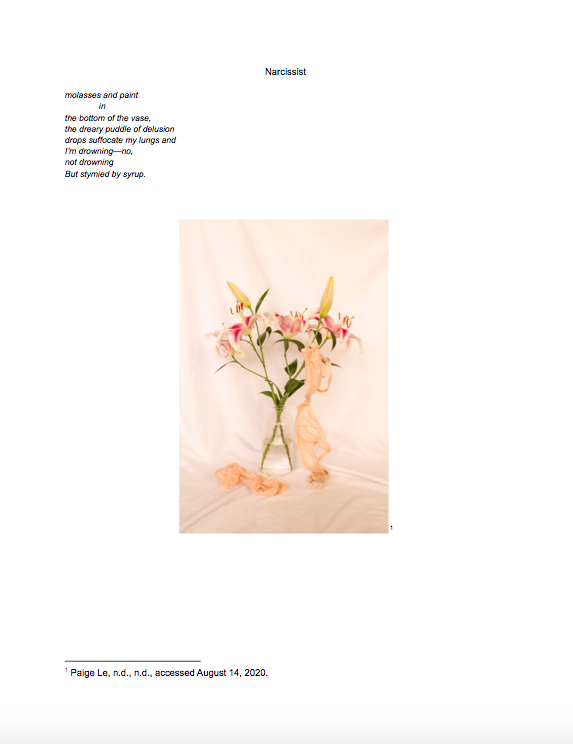
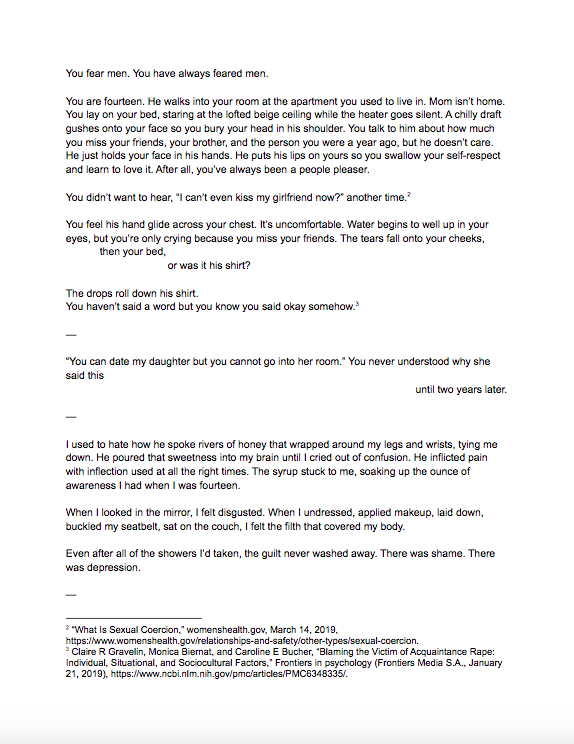
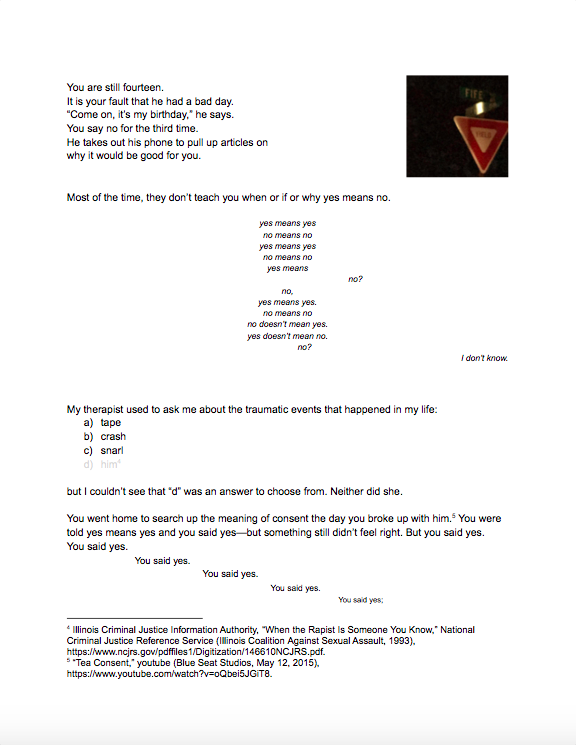
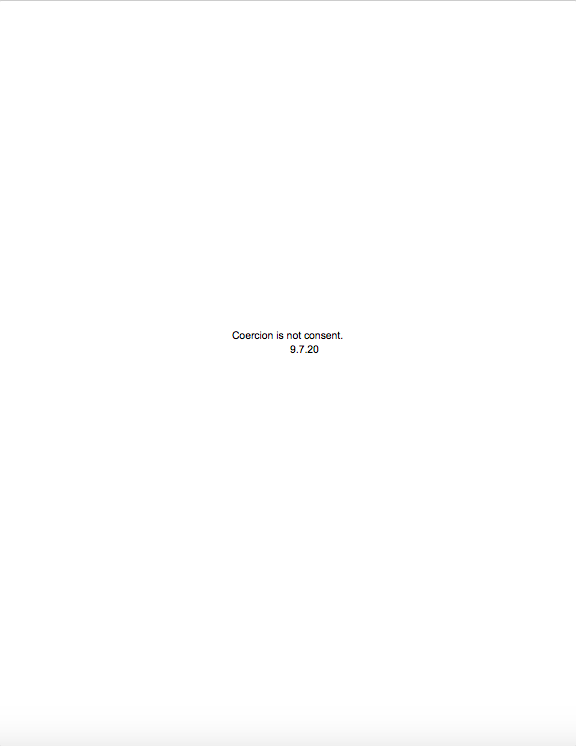
Bibliography:
Le, Paige. Avoir Desflouré. n.d. Accessed August 14, 2020.
“What Is Sexual Coercion.” womenshealth.gov, March 14, 2019. https://www.womenshealth.gov/relationships-and-safety/other-types/sexual-coercion.
“Tea Consent.” youtube. Blue Seat Studios, May 12, 2015. https://www.youtube.com/watch?v=oQbei5JGiT8.
Gravelin, Claire R, Monica Biernat, and Caroline E Bucher. “Blaming the Victim of Acquaintance Rape: Individual, Situational, and Sociocultural Factors.” Frontiers in psychology. Frontiers Media S.A., January 21, 2019. https://www.ncbi.nlm.nih.gov/pmc/articles/PMC6348335/.
Illinois Criminal Justice Information Authority. “When the Rapist Is Someone You Know.” National Criminal Justice Reference Service. Illinois Coalition Against Sexual Assault, 1993. https://www.ncjrs.gov/pdffiles1/Digitization/146610NCJRS.pdf.
Intention Statement
“Narcissist” is a lyrical essay about the emotional response to a traumatic sexual experience through the themes of consent, validation, and mental health. Typically sexual assault in the media is portrayed as violent or the event is very black and white. This essay is an attempt to illustrate the difficulty of navigating complicated situations. I used objects such as honey and syrup because young teenagers in relationships are often gaslit to question their reality so they are kept in these toxic situations. On the bottom of page 5, I used poetic lineation in order to convey falling into a pit of confusion and self-invalidation.
I was inspired by the works of Claudia Rankine and Ryan Van Meter.
Lyrical Essay Production
